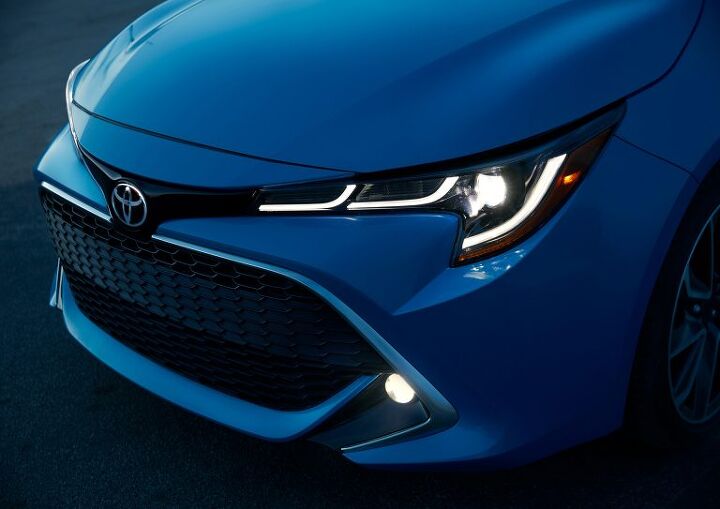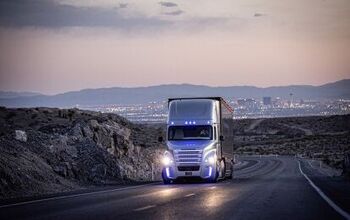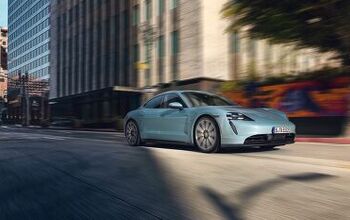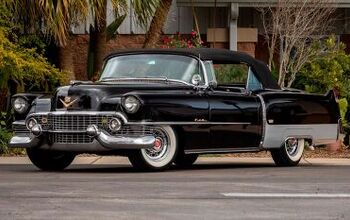Toyota: Commercial Vehicles Come First for Autonomous Features

The perpetually cautious Toyota has decided to adhere to industry norms by promising to launch its latest advanced driving technologies on commercial vehicles first. This announcement works in tandem with the Toyota Research Institute-Advanced Development’s (TRI-AD), which has a fancy new headquarters focused on delivering “safe mobility by bridging Silicon Valley’s innovation with Japanese craftsmanship.”
The decision to prioritize commercial vehicles is relatively common. Most companies developing self-driving tech believe there are loads of cash to be found in autonomous taxi services and automated fleets. Large firms operating an entire fleet of AVs will also be better equipped to purchase and service them. Heavily dependent upon camera equipment and sensors, self-driving vehicles will need to be constantly maintained to ensure they are clean and functional. Toyota also sees possibilities in mobile shops and ambulatory hospitals, according to Reuters, which would require similarly high levels of attention.
“It will take more time to achieve ‘Level 4’ for a personally-owned vehicle,” James Kuffner, chief of Toyota Research Institute-Advanced Development, explained. “Level 4 is really what we’re striving for to first appear in mobility as a service.”
SAE Level 4 effective allows a vehicle to operate autonomously but is incapable of functioning in all areas and conditions. Probable applications include campus buses, airport shuttles, and anything else operating on a closed loop. While self-driving cabs may need something more robust, Level 4 may be able to keep them operating in an extremely well mapped environment (like a city) without a driver. Still, most believe privately held AVs will require Level 5 capability and be capable of operating in all weather conditions and environments if they’re ever to receive regulatory approval.
From Reuters:
Toyota and its suppliers, including Denso Corp, which also invests in TRI-AD, is adopting a longer view toward cars with self-driving technology and artificial intelligence (AI) than many competitors that already market vehicles capable of autonomous highway driving.
Many of Toyota’s rivals, however, have pared development targets after fatal accidents in Tesla Inc cars have shown the complexity of autonomous technology even as they need to clear high regulation hurdles.
They’ve also been dumping heaps of cash into these programs, with many facing serious development issues despite fairly lax testing requirements in the United States.
While the Department of Transportation has embraced the technology and believes it to be the correct path to ensuring roadway safety, that hasn’t softened the cost of bringing vehicular autonomy to life or assuaged the concerns of the public. Many still harbor hangups about AVs, with recent surveys showing little to no improvement in consumer acceptance. The most reputable tabulations frequently indicate more than modest trepidation among U.S. drivers.
With that in mind, Toyota is probably making the right play to focus on businesses eager to explore the benefits of AVs while consumers continue mulling them over. It’s also unlikely to push this technology until it feels supremely confident all the bugs have been flushed out (because Toyota), making it a decent barometer for the rest of the industry’s progress.
[Image: Toyota Motor Corp.]

A staunch consumer advocate tracking industry trends and regulation. Before joining TTAC, Matt spent a decade working for marketing and research firms based in NYC. Clients included several of the world’s largest automakers, global tire brands, and aftermarket part suppliers. Dissatisfied with the corporate world and resentful of having to wear suits everyday, he pivoted to writing about cars. Since then, that man has become an ardent supporter of the right-to-repair movement, been interviewed on the auto industry by national radio broadcasts, driven more rental cars than anyone ever should, participated in amateur rallying events, and received the requisite minimum training as sanctioned by the SCCA. Handy with a wrench, Matt grew up surrounded by Detroit auto workers and managed to get a pizza delivery job before he was legally eligible. He later found himself driving box trucks through Manhattan, guaranteeing future sympathy for actual truckers. He continues to conduct research pertaining to the automotive sector as an independent contractor and has since moved back to his native Michigan, closer to where the cars are born. A contrarian, Matt claims to prefer understeer — stating that front and all-wheel drive vehicles cater best to his driving style.
More by Matt Posky
Latest Car Reviews
Read moreLatest Product Reviews
Read moreRecent Comments
- Statikboy I see only old Preludes in red. And a concept in white.Pretty sure this is going to end up being simply a Civic coupe. Maybe a slightly shorter wheelbase or wider track than the sedan, but mechanically identical to the Civic in Touring and/or Si trims.
- SCE to AUX With these items under the pros:[list][*]It's quick, though it seems to take the powertrain a second to get sorted when you go from cruising to tromping on it.[/*][*]The powertrain transitions are mostly smooth, though occasionally harsh.[/*][/list]I'd much rather go electric or pure ICE I hate herky-jerky hybrid drivetrains.The list of cons is pretty damning for a new vehicle. Who is buying these things?
- Jrhurren Nissan is in a sad state of affairs. Even the Z mentioned, nice though it is, will get passed over 3 times by better vehicles in the category. And that’s pretty much the story of Nissan right now. Zero of their vehicles are competitive in the segment. The only people I know who drive them are company cars that were “take it or leave it”.
- Jrhurren I rented a RAV for a 12 day vacation with lots of driving. I walked away from the experience pretty unimpressed. Count me in with Team Honda. Never had a bad one yet
- ToolGuy I don't deserve a vehicle like this.


































Comments
Join the conversation
"Many of Toyota’s rivals, however, have pared development targets after fatal accidents in Tesla Inc cars..." What, these weren't accidents just people wanting to go to Tesla heaven. Isn't that what cult members do? All kidding aside, systems like Autopilot should never have been allowed to be beta tested on the general public. The blame rests as much on government as it does on Tesla.